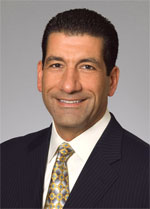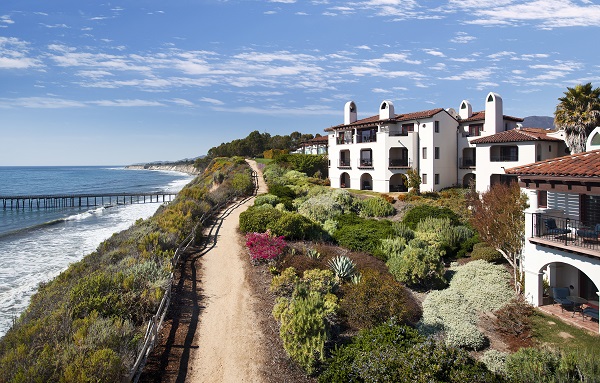 Carey Watermark Investors (CWI) launched in September as a non-traded REIT led by Michael Medzigian, former president and CEO of Lazard Freres Real Estate Investors. Lake Forest, Illinois-based CWI, created by Watermark Capital Partners and W.P. Carey, is poised to acquire up to US$2 billion (US$1 billion in the initial capital raise) in hotel real estate as values reach their low ebb. Medzigian will apply an intrusive asset management approach to fix assets with broken capital structures. Exit considerations will begin about six years after the initial two-year offer period. HOTELS’ Investment Outlook recently talked to Medzigian about his plans for CWI. HIO: Why did you form a lodging REIT, and what is your investment criteria? MEDZIGIAN: Non-traded REITs offer an attractive structure for owning and adding value to real estate assets. We won’t be subject to share price volatility and pressures related to quarterly earnings estimates and near-term share price targets. We also believe that our strategy will entail lower risk as compared with private equity funds, as we expect to incur moderate levels of leverage and generally expect to have longer holding periods. We are quite flexible as to investment criteria and interested in full-service and select-service properties, resorts and mixed-use assets. HIO: Are you acquiring 100% on your own? If you’re partnering on deals, how might those partnerships look? MEDZIGIAN: We have the ability to do both. I have always tended to invest more as a capital provider through joint ventures with high quality owners and operators, and we see that as particularly important following the recent industry downturn with the significant incidence of assets that need to be recapitalized. Among other things, we believe our partnering strategy can enhance our deal flow while benefiting our operating partners as we provide them with equity capital to help them grow or recapitalize their businesses. I have worked with brands and independent management companies and hope to continue working with existing partners and create new relationships. HIO: What are your geographic preferences for acquisition? MEDZIGIAN: We have the ability to invest globally. That said, analyst forecasts for the U.S. lodging industry appear attractive, so I would expect that the majority of our investments would be domestic. Here again we are somewhat flexible and opportunistic. HIO: Will you consider highly distressed assets in good locations? MEDZIGIAN: Yes. Generally, we would like our portfolio to consist of a mix of properties, including those that offer high current income, value-added properties that provide opportunity for capital appreciation and distressed situations. With over US$1 trillion of commercial real estate debt maturing over the next five years we believe that the number of distressed opportunities may be significant. HIO: What plans do you have to asset manage your hotels? MEDZIGIAN: As compared with other real estate property types given their nature, lodging assets often provide a broad range of value creation opportunities. Therefore, an important element of our strategy is to aggressively asset manage our properties. Our in-house asset management team will proactively work with our third-party management companies to enhance operational performance and investment returns.
Carey Watermark Investors (CWI) launched in September as a non-traded REIT led by Michael Medzigian, former president and CEO of Lazard Freres Real Estate Investors. Lake Forest, Illinois-based CWI, created by Watermark Capital Partners and W.P. Carey, is poised to acquire up to US$2 billion (US$1 billion in the initial capital raise) in hotel real estate as values reach their low ebb. Medzigian will apply an intrusive asset management approach to fix assets with broken capital structures. Exit considerations will begin about six years after the initial two-year offer period. HOTELS’ Investment Outlook recently talked to Medzigian about his plans for CWI. HIO: Why did you form a lodging REIT, and what is your investment criteria? MEDZIGIAN: Non-traded REITs offer an attractive structure for owning and adding value to real estate assets. We won’t be subject to share price volatility and pressures related to quarterly earnings estimates and near-term share price targets. We also believe that our strategy will entail lower risk as compared with private equity funds, as we expect to incur moderate levels of leverage and generally expect to have longer holding periods. We are quite flexible as to investment criteria and interested in full-service and select-service properties, resorts and mixed-use assets. HIO: Are you acquiring 100% on your own? If you’re partnering on deals, how might those partnerships look? MEDZIGIAN: We have the ability to do both. I have always tended to invest more as a capital provider through joint ventures with high quality owners and operators, and we see that as particularly important following the recent industry downturn with the significant incidence of assets that need to be recapitalized. Among other things, we believe our partnering strategy can enhance our deal flow while benefiting our operating partners as we provide them with equity capital to help them grow or recapitalize their businesses. I have worked with brands and independent management companies and hope to continue working with existing partners and create new relationships. HIO: What are your geographic preferences for acquisition? MEDZIGIAN: We have the ability to invest globally. That said, analyst forecasts for the U.S. lodging industry appear attractive, so I would expect that the majority of our investments would be domestic. Here again we are somewhat flexible and opportunistic. HIO: Will you consider highly distressed assets in good locations? MEDZIGIAN: Yes. Generally, we would like our portfolio to consist of a mix of properties, including those that offer high current income, value-added properties that provide opportunity for capital appreciation and distressed situations. With over US$1 trillion of commercial real estate debt maturing over the next five years we believe that the number of distressed opportunities may be significant. HIO: What plans do you have to asset manage your hotels? MEDZIGIAN: As compared with other real estate property types given their nature, lodging assets often provide a broad range of value creation opportunities. Therefore, an important element of our strategy is to aggressively asset manage our properties. Our in-house asset management team will proactively work with our third-party management companies to enhance operational performance and investment returns.


